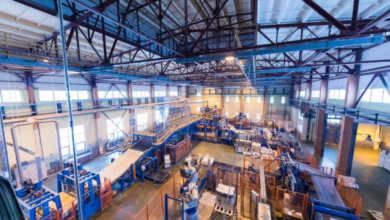The Importance of Hiring Licensed Electricians

Electrical work is inherently dangerous and requires a high level of skill and knowledge to be performed safely and effectively. Hiring a licensed electrician is essential for several reasons:
Safety
Licensed electricians are trained to adhere to strict safety standards and regulations. They understand the complexities of electrical systems and are equipped to handle potential hazards, such as electrical shocks, fires, and short circuits. Their expertise ensures that all electrical work is performed safely, reducing the risk of accidents and injuries.
Compliance with Codes and Regulations
Electrical work must comply with local building codes and regulations to ensure safety and quality. Licensed electricians are knowledgeable about these codes and ensure that their work meets all necessary standards. This compliance is particularly important for major installations and renovations, as non-compliance can result in fines, legal issues, and potential safety hazards.
Read also: How Asset Management Software Saves You Money
Quality Workmanship
Licensed electricians possess the skills and experience needed to perform high-quality electrical work. They undergo rigorous training and certification processes, which equip them with the knowledge to handle a wide range of electrical tasks. Their expertise ensures that electrical systems are installed, repaired, and maintained to the highest standards of quality and reliability.
Insurance and Warranty
Reputable licensed electricians typically offer warranties on their work, providing peace of mind to homeowners and businesses. Additionally, they carry insurance, which means that any damage or injury that occurs during the job is covered. This protects property owners from potential liability and ensures that any issues arising from the electrical work will be promptly addressed.
Types of Electrical Services Provided by Licensed Electricians
Licensed electricians offer a broad range of services to meet the diverse needs of residential, commercial, and industrial clients. Some of the most common services include:
Electrical Installations
Licensed electricians handle the installation of new electrical systems and components. This includes wiring, outlets, switches, lighting fixtures, circuit breakers, and electrical panels. Proper installation is crucial for ensuring the safety and efficiency of the electrical system.
Electrical Repairs
Electrical issues can arise unexpectedly and cause significant disruptions. Licensed electricians are equipped to diagnose and repair a wide range of electrical problems, from minor issues like faulty outlets and flickering lights to major issues like power outages and electrical panel malfunctions.
Electrical Upgrades
As technology advances and electrical demands increase, older electrical systems may need to be upgraded to meet modern standards. Licensed electricians can upgrade electrical panels, wiring, and other components to ensure that the system can handle the increased load and operate efficiently.
Electrical Inspections and Maintenance
Regular inspections and maintenance are essential for identifying and addressing potential electrical issues before they become major problems. Licensed electricians perform thorough inspections of electrical systems, identifying any signs of wear, damage, or code violations. They also provide routine maintenance to keep the system running smoothly and safely.
Lighting Design and Installation
Lighting plays a crucial role in the functionality and aesthetics of a space. Licensed electricians can design and install custom lighting solutions to meet the specific needs and preferences of clients. This includes indoor and outdoor lighting, landscape lighting, security lighting, and energy-efficient lighting options.
Emergency Electrical Services
Electrical emergencies, such as power outages, electrical fires, and major system failures, can occur at any time and require immediate attention. Licensed electricians offer 24/7 emergency services to address urgent issues promptly and prevent further damage or safety hazards.
Specialized Electrical Services
Licensed electricians may also offer specialized services for specific industries or applications. This can include electrical work for medical facilities, data centers, manufacturing plants, and other specialized environments. These services require a deep understanding of the unique electrical requirements and safety standards of each industry.
The Process of Becoming a Licensed Electrician
Becoming a licensed electrician involves a combination of education, training, and certification. The process typically includes the following steps:
Education
Aspiring electricians usually start by obtaining a high school diploma or GED. High school courses in math, science, and technical subjects can provide a strong foundation for further education in electrical work. Many electricians also complete post-secondary education programs, such as associate degrees or certificates in electrical technology, which provide more in-depth knowledge and hands-on training.
Apprenticeship
The next step in becoming a licensed electrician is to complete an apprenticeship program. Apprenticeships are typically offered by trade unions, contractor associations, or electrical companies. These programs combine classroom instruction with on-the-job training, allowing apprentices to gain practical experience under the supervision of experienced electricians. Apprenticeships usually last between four and five years and cover a wide range of topics, including electrical theory, safety practices, blueprint reading, and electrical code requirements.
Licensing and Certification
After completing an apprenticeship, aspiring electricians must obtain a license to practice professionally. Licensing requirements vary by state and locality but generally include passing a written exam that tests knowledge of electrical theory, codes, and safety practices. Some states also require a certain amount of on-the-job experience before granting a license. Additionally, electricians may pursue voluntary certifications from organizations such as the National Electrical Contractors Association (NECA) or the International Brotherhood of Electrical Workers (IBEW) to demonstrate their expertise and commitment to professional standards.
Continuing Education
Electrical codes and technologies are constantly evolving, and licensed electricians must stay up-to-date with the latest developments in the field. Many states require licensed electricians to complete continuing education courses to renew their licenses. These courses cover topics such as new electrical codes, safety practices, and emerging technologies, ensuring that electricians maintain their skills and knowledge throughout their careers.
Why Expertise of Licensed Electricians is Invaluable
The expertise of licensed electricians is invaluable for several reasons:
Problem Solving
Electrical systems can be complex, and diagnosing issues requires a deep understanding of how these systems work. Licensed electricians have the training and experience to identify the root causes of electrical problems and provide effective solutions. Their problem-solving skills ensure that issues are resolved quickly and accurately, minimizing downtime and inconvenience for property owners.
Efficiency
Licensed electricians can complete electrical work more efficiently than untrained individuals. Their expertise allows them to work quickly and accurately, reducing the time and effort required to complete a project. This efficiency translates to cost savings for property owners, as well as reduced disruption to daily activities.
Advanced Techniques and Tools
Licensed electricians have access to advanced techniques and tools that enable them to perform their work with precision and accuracy. From diagnostic equipment to specialized tools for installations and repairs, these resources allow electricians to handle even the most complex tasks with confidence.
Safety and Reliability
The safety and reliability of an electrical system are paramount, and licensed electricians are trained to ensure both. Their adherence to safety standards and regulations minimizes the risk of accidents and ensures that electrical systems operate reliably. This reliability is crucial for both residential and commercial properties, where electrical issues can cause significant disruptions and hazards.
Value
Investing in the services of licensed electricians adds value to a property. High-quality electrical work enhances the functionality and safety of a building, making it more attractive to potential buyers or tenants. Additionally, properly installed and maintained electrical systems reduce the likelihood of costly repairs and replacements in the future.
Common Electrical Problems and Their Solutions
Electrical issues can arise unexpectedly and cause significant disruptions. Here are some common electrical problems and their solutions:
Frequent Circuit Breaker Trips
Frequent circuit breaker trips can be caused by overloaded circuits, short circuits, or ground faults. Licensed electricians can identify the cause of the issue and recommend solutions such as redistributing the electrical load, repairing damaged wiring, or upgrading the electrical panel.
Flickering Lights
Flickering lights can be caused by loose connections, faulty light bulbs, or issues with the electrical panel. Licensed electricians can diagnose the problem and provide solutions such as tightening connections, replacing faulty components, or upgrading the electrical system.
Outlets Not Working
Non-functioning outlets can be caused by tripped circuit breakers, loose connections, or faulty wiring. Licensed electricians can inspect the electrical system, identify the cause of the issue, and perform the necessary repairs to restore functionality.
Electrical Shocks
Experiencing electrical shocks when touching appliances or outlets can indicate grounding issues or faulty wiring. Licensed electricians can conduct a thorough inspection of the electrical system to identify and rectify any safety hazards, ensuring that the system is properly grounded and safe to use.
Burning Smell or Sparks
A burning smell or sparks coming from outlets or switches can indicate serious electrical problems, such as overloaded circuits or faulty wiring. Licensed electricians can quickly identify the source of the issue and perform the necessary repairs to prevent potential fires and ensure safety.
Conclusion
Licensed electricians are essential for ensuring the safety, reliability, and efficiency of electrical systems in residential, commercial, and industrial properties. Their expertise, training, and adherence to safety standards make them invaluable for handling a wide range of electrical tasks, from installations and repairs to inspections and maintenance. By hiring licensed electricians, property owners can have peace of mind knowing that their electrical systems are in capable hands, and that any issues will be addressed promptly and effectively. Regular preventive maintenance and timely repairs by licensed electricians can prevent major electrical problems, extend the lifespan of electrical systems, and enhance the overall safety and functionality of a property.




